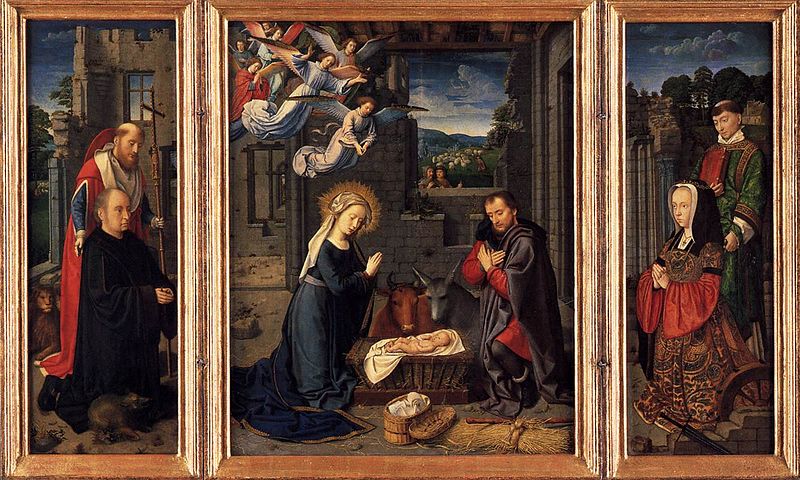Even with its long “Messiah” tradition, H&H delivers fresh and thrilling Handel
There’s no doubt that the Handel and Haydn Society counts performances of Handel’s Messiah among its richest traditions.
H&H gave the American premiere of the complete oratorio in 1818 and has offered it annually for the past one hundred and sixty-one years. Such a history breeds familiarity, though it has also resulted in a kind of freshness in approach that has marked the society’s performances of the work in recent seasons.
That is due primarily to the leadership of music director Harry Christophers, who makes it a point to present the oratorio in a slightly different light every year. His reading of Messiah Friday night at Symphony Hall was characteristically fresh, sparkling in delivery, and thoroughly exciting in effect, a performance that proved a marvelous opening for the holiday season.
The keystone to Christophers’ direction is his unique ability to shape a vocal line. He commanded crisp, pointed phrases from the chorus to highlight a particular declamatory passage. The work’s melodies, in other places, seemed to follow Christophers’ gestures, sounding smooth in their serpentine course before coming to rest to emphasize a single word of text.
But the most remarkable aspect of Friday night’s performance of Messiah was its vitality. Christophers led with a sharp sense of rhythm and a clear sense of the work’s architecture.
The first of the oratorio’s three parts seemed to propel itself forward with lively energy, and the H&H chorus sang with radiant blend and crystalline diction. The independent lines of “And the Glory of the Lord” wove together into a soft web of sound. “And he shall purify” moved at a bounce, with the singers delivering the melismas with precision. Christophers took care to highlight the rhetorical features of the work. The passages for the phrase “wonderful, councilor” from “For unto us a child is born” were colored with tasteful dynamic shading, the music seeming to capture the excited anticipation of Christ’s birth.
For the somber music that comprises the second part and the reverential music that fills the third, Christophers drew out the phrases of the music for dramatic effect. The conductor has a knack for making that most famous of choruses, the “Hallelujah,” sound anew in wonderfully surprising ways, calling for soft, laser-focused singing for the line “King of Kings and Lord of Lords” before commanding a sudden bell-toned forte for the “Hallelujahs.”
But nowhere was the drama more palpable than in the chorus “Since by man came death.” Christophers shaped the slow, hymn-like opening with subtle crescendos before unleashing the sheer joy from the phrase “by man came the resurrection of the dead” with quick pace and full volume. The chorus sang with aplomb for this most affecting moment in the oratorio.
Joining the chorus was a strong cast of soloists.
Soprano Joélle Harvey, in her return to H&H after her performance in Handel’s Samson last season, sang with a soft, elegant voice that was well suited to the winding and trickling quality of Handel’s vocal writing. She sang the recitatives in the first part of the work with the sensitivity of an orator, and she engaged in some dexterous singing for the bubbling melismas in “Rejoice greatly.” The singer also has a fine way of rendering the seraphic arias that pepper Messiah. Her performance of “I know that my redeemer liveth” was positively angelic in its soft, velvety melody.
H&H’s past performances of Messiah have used countertenors instead of altos with varying degrees of success. But the society found a stellar presence in countertenor Tim Mead. Warm and smooth of tone, Mead’s singing mined the pure humanity laden within Handel’s score. His aria “But who may abide” had the twinge of sadness. His performance of “He was despised” was wrenching. “You are responsible for Christ’s suffering too,” the music seemed to say. Mead, though, was capable of turning up the heat. His singing of “For he is like a refiner’s fire” was electrifying, the darting lines sounding with spring-water clarity.
Tenor Allan Clayton possesses a strong, noble voice. His singing for the opening recitative “Comfort ye my people” sounded with enveloping warmth, and he gave the ensuing aria “Ev’ry valley” a nimble bounce. He also found the drama laden within the score, singing a fiery and powerful “Thou shalt break them” as well as an affecting “Thy rebuke hath broken his heart.”
No performance of Messiah would be complete without a robust bass, and H&H’s performance Friday night provided one in Brindley Sherratt. His recitative “Thus sayeth the Lord” was earth-shaking in its power and declamation. Solid in all of his moments of the oratorio, the singer found the palpable foreboding in “For behold, darkness shall cover the earth” and his voice swelled with intensity to complement Jesse Levine’s brilliant trumpet playing in “The trumpet shall sound,” the phrases carrying the emotional strength of a preacher’s Sunday sermon.
Backing the soloists and chorus was H&H’s period-instrument orchestra, which played with fine attention to the oratorio’s musical detail. The musicians performed the overture with a free sense of space, the fugue swaying with a dance-like feel. The orchestra provided accompaniment of bustling energy for the oratorio’s choruses, with cellist Guy Fishman, harpsichordist Ian Watson, and organist Justin Blackwell supplying a sturdy continuo. Trumpeters Jesse Levine and Paul Perfetti along with timpanist Gary DiPerna added glorious sound to “Hallelujah” and the closing “Amen.”
Messiah will be repeat 3 p.m. Saturday and Sunday at Symphony Hall. handelandhaydn.org
Posted in Performances
